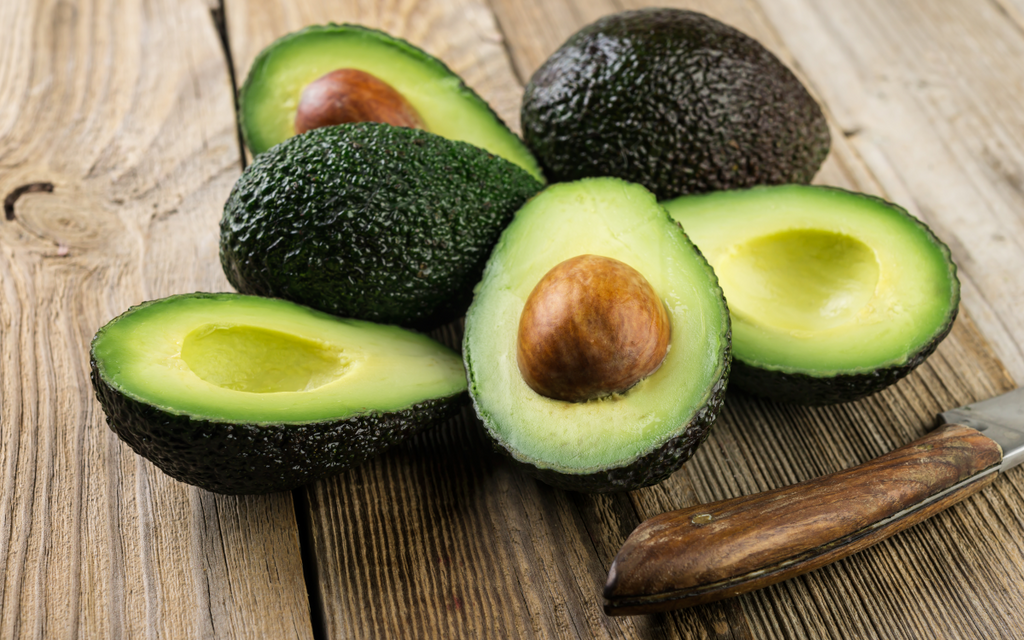Lifestyle habits play a huge role when it comes to keeping your health and wellbeing in the green.
But have you ever thought about how your lifestyle habits may be impacting your sex hormones?
Well, in this comprehensive guide, we’ll explore the connection between healthy habits and sex hormone levels, providing valuable insights into how our choices can influence hormone balance.
From diet and exercise to sleep and stress management, your daily choices have a significant impact on various aspects of your health—your sex hormone levels are no exception.
Sex hormones are essential for reproductive health as well as a range of other major bodily functions. And understanding how your lifestyle can contribute to sex hormone levels and managing them is key to your health.
Internal factors like age, alongside external factors like your diet, can influence hormones, potentially leading to issues with everything from weight to mood.
Stay tuned to learn about the relationship between lifestyle choices and hormone levels and connect with actionable advice for maintaining hormonal balance.
Let's get into it!
What are sex hormones?
Sex hormones are crucial in sexual development and reproduction. They’re produced by the endocrine glands, primarily the gonads (testes in males and ovaries in females), the adrenal glands, and certain other tissues. The main sex hormones include testosterone (mainly male), oestrogen, and progesterone (primarily female).
These hormones work together to regulate various aspects of sexual development, reproduction, and overall health in both males and females. They influence not only physical characteristics but also mood, behaviour, and cognition.
What are the main sex hormones in males?
Male and female sex hormones differ by the specific hormones involved, their predominant roles, and their levels of expression.
Here's the main male sex hormones and their functions…
Testosterone: Testosterone is the main male sex hormone (the big one)), which plays a crucial role in the development of male reproductive tissues like the testes and prostate. Testosterone also promotes secondary sexual characteristics like muscle mass, bone density, and body hair growth. Testosterone also regulates libido (sex drive), sperm production, and overall male reproductive function.
Dihydrotestosterone (DHT): Dihydrotestosterone is a derivative of testosterone. It’s a potent androgen that plays a role in the development of male external genitalia during foetal development and is responsible for the growth of facial and body hair during puberty. DHT is also involved in regulating prostate growth and function.
Androstenedione: Androstenedione is an androgen hormone produced in the testes and adrenal glands. It serves as a precursor to both testosterone and oestrogen in the body. While androstenedione itself has weaker androgenic activity compared to testosterone, it contributes to overall androgen production and can be converted to more potent hormones like testosterone and DHT.
These hormones work together to regulate various aspects of male sexual development, reproductive function, and overall health.
They influence not only physical characteristics but also mood, behaviour, and mental wellbeing. Imbalances in male sex hormone levels can lead to various health issues, including infertility, sexual dysfunction, and conditions like hypogonadism or benign prostatic hyperplasia (BPH).
What lifestyle factors can impact sex hormone levels?

Your lifestyle includes any choice or action you make that influences your life in a small or big way.
Several lifestyle factors can impact sex hormone levels. To improve them naturally, you can adopt healthy lifestyle habits that support your overall hormone production and balance.
Let's take a quick look at what lifestyle factors impact your sex hormone levels...
- Diet
- Weight
- Exercise
- Stress
- Sleep
- Alcohol and substance use
- Environmental factors
- Medications
- Age
Note: Various factors can impact your sex hormone levels. Overall, maintaining optimal hormone balance is essential for your health and wellbeing.
If you think you might have a hormonal imbalance or experience symptoms related to hormone dysfunction, it's important to consult with a healthcare provider for proper evaluation and management.
Testosterone-boosting foods
Food and diet play a big role in supporting healthy testosterone levels. The nutrients from food are important for testosterone production and metabolism.
Getting the right foods in your diet is essential to having a healthy hormonal balance.
Here are some examples of foods you should consume to keep those T levels in the green…
Lean protein
Protein-rich foods provide essential amino acids needed to help with hormonal harmony. Go for lean sources of protein like chicken, turkey, fish, eggs, and low-fat dairy products.
Healthy fats

Healthy fats are important for hormone production, including testosterone. Include sources of monounsaturated and polyunsaturated fats in your diet. These include avocados, nuts, seeds, olive oil, and fatty fish like salmon and mackerel.
Zinc-rich foods
Zinc is an essential mineral for testosterone production and metabolism. Zinc-rich foods include oysters, beef, lamb, pork, chicken, turkey, pumpkin seeds, and lentils.
Vitamin D, A and C
Adequate vitamin D levels are important for testosterone production. Get vitamin D from sunlight exposure and foods like fatty fish (salmon, mackerel, sardines), fortified foods (milk, orange juice, cereal), and supplements.
Consume foods rich in vitamin A, such as carrots, sweet potatoes, spinach, kale, and liver.
Vitamin C is an antioxidant that may help reduce oxidative stress and support overall health, including hormone balance. Citrus fruits, strawberries, bell peppers, broccoli, and kiwi are good sources of vitamin C.
Magnesium
Magnesium plays a role in testosterone production and may help increase free testosterone levels. Magnesium-rich foods include leafy green vegetables, nuts, seeds, whole grains, and legumes.
Garlic
Garlic contains compounds that may help increase testosterone levels and improve overall health. Incorporate garlic into your meals as a flavouring agent or as a supplement.
Ginger
Ginger has been shown to have testosterone-boosting effects and may help improve fertility. Add fresh ginger to your meals or brew ginger tea for a refreshing drink.
Pomegranate
Natural pomegranate juice has antioxidant properties and may help increase testosterone levels. Enjoy fresh pomegranate seeds or drink pure pomegranate juice (without added sugars).
Cruciferous vegetables
Cruciferous veggies like broccoli, Brussels sprouts, cauliflower, and cabbage contain indole-3-carbinol, which may help reduce oestrogen levels and promote a solid testosterone-to-oestrogen ratio.
Water
Staying hydrated is important for overall health and hormone balance. Drink plenty of water throughout the day to support optimal hydration and hormone function. Around 12 to 15 standard cups will do the trick.
Tip: While no single food can dramatically increase testosterone levels on its own, weaving these foods into a balanced diet may contribute to overall hormonal health.
Focus on consuming whole foods, including fruits, vegetables, lean proteins, and healthy fats, to support optimal sex hormone levels.
Testosterone-boosting exercises

Regular physical activity and certain types of exercise can support overall hormonal health and have the potential to optimise testosterone levels.
Here are some exercises that can help promote testosterone production and metabolic health:
Resistance or strength training
Resistance or strength training exercises are effective for increasing testosterone levels. Focus on compound exercises that target multiple muscle groups.
Squats, deadlifts, bench presses, rows, and overhead presses are examples of these big-hitting, T-boosting exercises. To gain muscle and stimulate hormonal responses, use challenging weights and moderate to high-intensity workouts.
High-intensity interval training (HIIT)
HIIT workouts involve short bursts of intense exercise followed by brief recovery periods. HIIT has been shown to increase testosterone levels. Try exercises such as sprints, jump squats, burpees, and kettlebell swings into your workout routine.Full-body workouts
Circuit training or full-body resistance workouts that include exercises for the upper body, lower body, and core can help stimulate testosterone production.Compound exercises
These types of exercises involve multiple joints and muscle groups, tending to increase testosterone levels more in comparison to isolation exercises.Examples of compound exercises include squats, deadlifts, lunges, pull-ups, and push-ups.
Heavy lifting
Progressively lift heavy weights within your capacity to challenge your muscles and stimulate testosterone release. Increase the weight amount once you feel comfortable with your strength to promote muscle growth and hormonal adaptation.Top tip: Check out our big-hitting rundown of nine exercises that will help boost your testosterone levels.
Tips for maintaining healthy sex hormone levels through lifestyle habits
Maintaining healthy sex hormone levels is essential for overall health and wellbeing. Here are some extra tips to support hormone balance through lifestyle habits…
Weight
Obesity is associated with lower testosterone levels and higher oestrogen levels in men. Maintaining a healthy weight through diet and exercise can help support healthy hormone levels.
Stress
Chronic stress can elevate cortisol levels, which can suppress testosterone production. Stress management techniques such as mindfulness, meditation, and relaxation exercises may help to keep you balanced and maintain that all-important hormonal harmony.
Sleep

Poor sleep quality or insufficient sleep can disrupt hormone production, including testosterone. Aim for seven to nine hours of quality sleep per night to support healthy hormone levels.
Alcohol
Excessive alcohol consumption can impair testosterone production and lead to hormonal imbalances in men. We’re not saying don’t enjoy a tipple or two here and here. But, to keep your testosterone levels in a healthy range, drinking in moderation is the way to go.
Environmental factors
Exposure to endocrine-disrupting chemicals (EDCs) found in plastics, pesticides, and some personal care products can interfere with hormone function in men. So, minimising your exposure (if you can) to these chemicals may help maintain optimal hormone levels.
Medications
Certain medications, such as corticosteroids, opioids, and some antidepressants, can affect hormone levels in men. It's important to discuss potential side effects with a healthcare provider when taking these medications.
Age
Testosterone levels naturally decline with age in men, typically starting around age 30 to 40. But, adopting a healthy lifestyle can help slow this decline and support overall hormone balance.
With age, there is a natural fluctuation in our sex hormone levels, including testosterone and oestrogen.
The common side effects of testosterone imbalances
Testosterone imbalances in males, whether too high or too low, can lead to various side effects and health issues.
Here are some of the potential side effects associated with abnormal testosterone levels in male…
Low testosterone (Hypogonadism)
- Reduced libido (sex drive)
- Erectile dysfunction (difficulty achieving or maintaining an erection)
- Infertility (reduced sperm production)
- Fatigue and low energy levels
- Decreased muscle mass and strength
- Increased body fat, particularly around the abdomen
- Decreased bone density and increased risk of osteoporosis and fractures
- Mood changes, including depression, irritability, and decreased motivation
- Difficulty concentrating and memory problems
- Hot flashes (less common in males but can occur)
- Changes in sleep patterns, including insomnia or excessive sleepiness
High testosterone (Hyperandrogenism)
- Acne and oily skin
- Increased facial and body hair growth
- Male pattern baldness (hair loss at the temples and crown of the head)
- Enlarged prostate gland and increased risk of urinary problems such as increased frequency, urgency, and difficulty urinating
- Aggression and irritability
- Mood swings and increased risk of mood disorders such as anxiety and depression
- Increased libido (sex drive) and heightened sexual arousal
- Reduced testicular size
- Infertility due to suppression of sperm production
- Increased risk of cardiovascular disease, including hypertension and atherosclerosis
- Sleep disturbances, including sleep apnea
Lifestyle and sex hormones: Final thoughts

Our hormonal balance can be profoundly affected by adopting a healthier lifestyle, which ultimately leads to a healthy life.
Adopting healthy habits will support your sex hormone levels in a big way. This will, in turn, benefit your overall health and wellbeing.
Understanding the connection between lifestyle habits and sex hormone levels empower you to make informed choices. So, start making these lifestyle changes today and reap the benefits of balanced sex hormone levels. Good luck on your journey.
Lift your T levels naturally with testosterone boosters
Low levels of male sex hormones like testosterone can have significant health impacts on your libido, erectile function, energy levels, muscle mass, mood, and body fat.
So it’s important (for the sake of your health) not to let them drop too far. That’s where the lifestyle changes we talked about come into play.
And one of the easiest changes to make to your daily routine is to take a dietary supplement like TestoPrime.
All of the ingredients in the TestoPrime formula are handpicked for their ability to raise testosterone levels naturally, helping you to recover your strength, vitality, and manhood in the process.
If you’re looking for a boost to your mental, physical, and sexual health, TestoPrime will help you keep your T levels in the green. Go get some.





